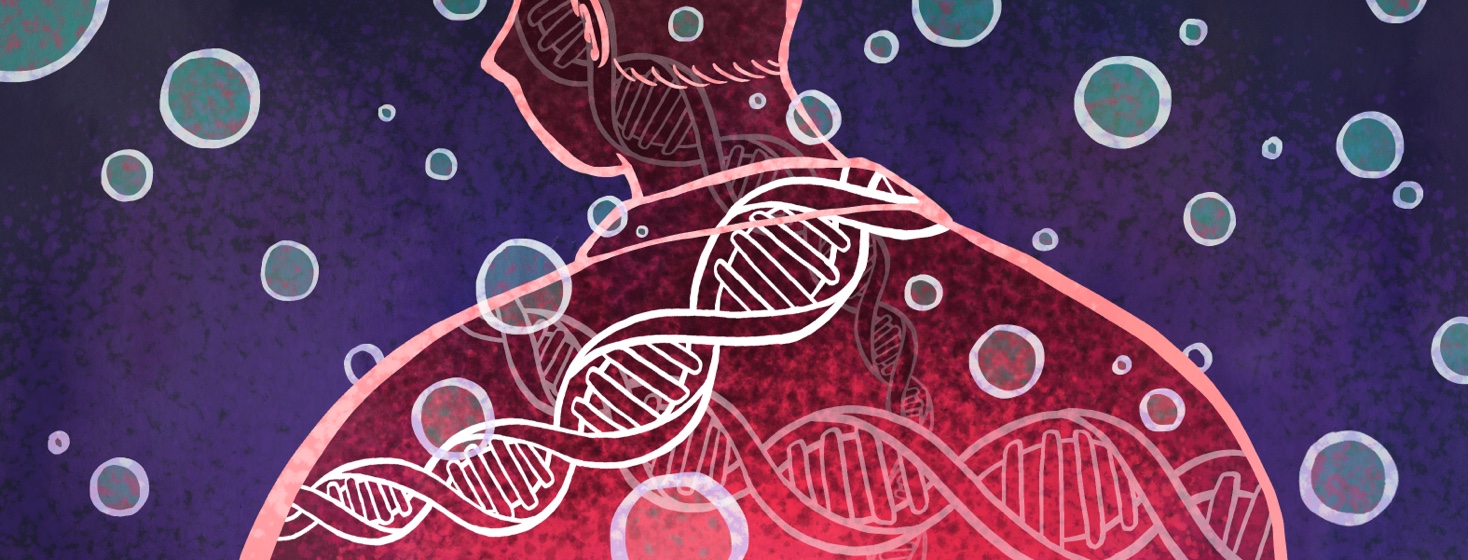Being Tested for Lynch Syndrome
Towards the end of my treatment, I had a conversation with my oncologist about genetic testing. Due to my young age, they wanted me to be tested for Lynch Syndrome.
What is Lynch Syndrome?
Lynch Syndrome is a genetic mutation that predisposes a person to get a whole host of cancers at a young age, including bladder cancer, as defined by the Center for Disease Control.1
GULP
A lump immediately formed in my throat. I wanted to cry. A syndrome that causes you to have cancer?!?!? What?!?!?
For me, this was one of those times when I had to really stop and think. Do I really want to know or not?
Did I want to know if I had this genetic mutation?
There are no cures for genetic mutations. No easy fixes. The only treatments are to remove organs, some of which had already been removed, but those are extreme precautionary measures. They do not guarantee that a person will not ever get cancer. They merely decrease the likelihood. However, my family should probably know if I have the mutation or not. The wheels in my head were spinning. I was doing my best not to let them spin out of control.
Thinking of my family
I never wanted to have children. Since my procedure, that option was biologically impossible as I had a radical, complete hysterectomy at the same time as my radical cystectomy. I do, however, have a brother, and he has children. If I have a genetic mutation, he or his children could be carriers for the mutation. Would any of them be able to deal with what I did with treatments and possibly more?
How much would genetic testing cost?
I asked about the costs involved. Since I had already had my bladder cancer diagnosis, most of the cost would be absorbed by insurance. My out-of-pocket cost ended up being a few hundred dollars. Not great, but as far as genetic testing goes, not bad either.
I decided to move forward with the testing.
The test collection was super easy. Mouth swab. Done in a matter of moments.
Waiting for the results
Waiting for the results was another matter entirely. They send the sample off to an outside lab, and it took a couple of months before I finally got the results.
The wait was excruciating. Eventually, the results were back, and I received a call from the genetic counselor I was working with.
I was negative for Lynch Syndrome! I was beyond relieved!
The possibility of bracing for other cancers was gut-wrenching even without the results. Still, I was grateful that I did not need to have conversations with other family members about getting tested and being on the lookout for cancer symptoms.
Talk to your oncologist about the process
My advice to anyone diagnosed with bladder cancer under the age of 50 is that if you have not had a conversation with your oncologist about getting genetics testing done, do so at your next visit. It is not an easy process to go through, but I believe knowledge is power.
People with Lynch Syndrome should be monitored more closely than people without Lynch Syndrome so that symptoms and tumors can be caught early and treated. Without knowing whether or not you have Lynch Syndrome, you can not adequately prepare for your life moving forward, and you put others in your family at risk by not arming them with the knowledge they need for their futures.
Since I've gotten those results, I have been able to breathe a bit easier. I have focused more on what is happening in my life and what direction I want my life to go in.

Join the conversation